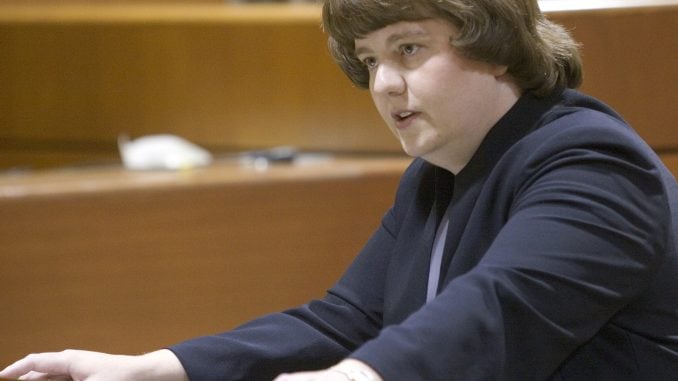
Christine Blasey Ford, a Democrat, alleged that Kavanaugh drunkenly groped her and tried to remove her clothes when they were teenagers. The allegation has predictably raised a political storm in the #MeToo era.
Allegations from two other women have since emerged, but Republicans have not announced any plans to focus Thursday’s session on those claims. Kavanaugh has denied all the accusations.
Mitchell works in the Maricopa County Attorney’s Office in Phoenix as the chief of the Special Victims Division. She supervises attorneys who handle cases involving child molestation, sexual assault and computer crimes against children in Arizona’s most populous county.
Mitchell “has been recognized in the legal community for her experience and objectivity,” committee Chairman Chuck Grassley, a Republican from Iowa, said in a statement Tuesday.
Maricopa County Attorney Bill Montgomery, Mitchell’s boss, praised her experience in an interview with The Arizona Republic , calling her an “objective prosecutor” who has a “caring heart” for victims. He said he was contacted by staff members of the Judiciary Committee over the weekend about Mitchell’s qualifications.
In July 2014, Mitchell prosecuted a former church baby sitter and camp counselor in the Phoenix suburb of Scottsdale who molested children in his care over a seven-year period. He was sentenced to 30 years in prison with lifetime probation.
“People want to go to a church on a Sunday and feel safe,” Mitchell said at the time, adding that the settings of his actions “should be taken into account.”
In 2015, Mitchell prosecuted a 13-year veteran of the Mesa Police Department who groped two women, one of whom had passed out.
She has been named Arizona’s Outstanding Sexual Assault Prosecutor as well as Maricopa County Attorney’s Office Prosecutor of the Year.
The county attorney’s office introduced a sex crimes protocol last year — the first in its history. The new policy manual will ensure that prosecutors have a guide “so that we can do the best we can for victims,” Mitchell told a local NPR station in January.
“It’s always hard to know which victims were not victims or which people were not victims because your system worked,” Mitchell said in an interview with Phoenix radio station KJZZ.


